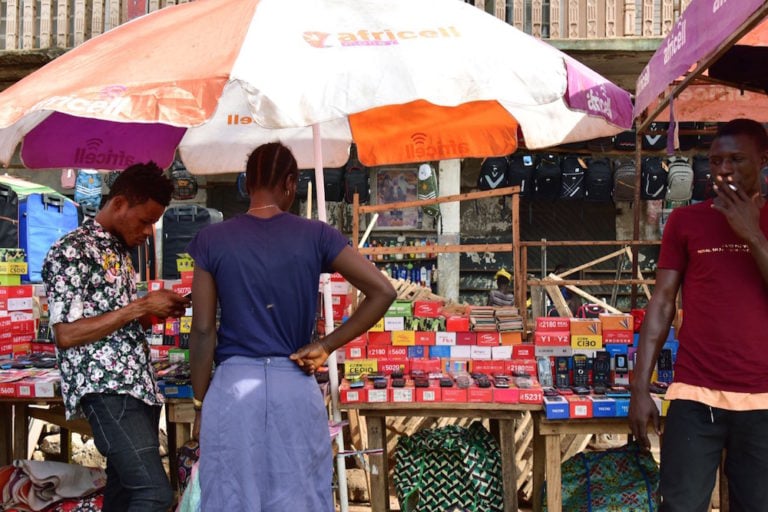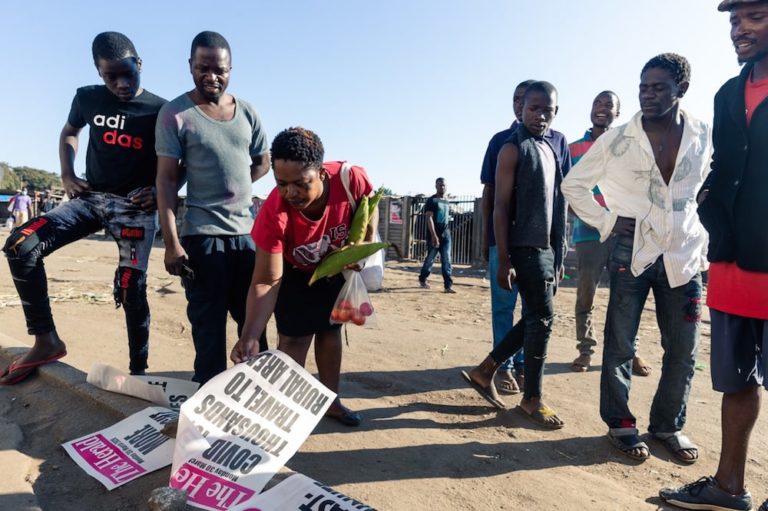Staff at the parastatal Namibian Broadcasting Corporation (NBC) fear official interference in the corporation’s editorial policy is set to increase following an incident last Thursday 8 June 1995 when a government official entered the NBC newsroom and “ordered” that unedited footage of a presidential press conference be played in full on the evening television news, […]
Staff at the parastatal Namibian Broadcasting Corporation (NBC)
fear official interference in the corporation’s editorial policy
is set to increase following an incident last Thursday 8 June
1995 when a government official entered the NBC newsroom and
“ordered” that unedited footage of a presidential press
conference be played in full on the evening television news, “The
Namibian” newspaper reports.
According a report in the 13 June edition of “The Namibian”, the
Chief of Protocol from the office of President Sam Nujoma, Martin
Andjamba, came to the NBC newsroom at around 18:00 on 8 June and
told the producer in charge of the 20:00 television news bulletin
to run in full unedited footage of a press conference Nujoma held
with South African President Nelson Mandela in Cape Town earlier
that day.
Quoting anonymous NBC staff sources, “The Namibian” reports that
the NBC producer tried but failed to contact senior management
for advice, at which Andjamba left the news room saying: “I’ve
been here, I told you what to do, I’m leaving.” The NBC ended up
carrying an edited version of the press conference on the news
bulletin, which was followed by transmission of the unedited
footage.
The following day, the NBC Public Relations department issued a
statement which said, “NBC management cannot condone and will not
allow the practice of any individual entering NBC premises and
intimidating editorial staff….The NBC does not see anything
inherently wrong with any stakeholder, be it the State, business
concerns, organisations or individuals, to demand or request
maximum coverage of events they have an interest in, or to
attempt to dictate the format or nature of the coverage to be
given to such an event. However, NBC management maintains that it
is the prerogative of the NBC editorial team to decide the scope
and nature of coverage and to shape the form of a news item.”
In an interview with Voice of America (VOA) radio on 12 June, NBC
Director-General Nahum Gorelick said there was concern about the
possibility of self-censorship by corporation journalists as a
result of intimidation “perceived or otherwise.” “There could be
a critical danger of the NBC becoming a state propaganda tool as
it was before (Namibia’s) independence,” Gorelick said. The NBC
board is due to discuss the Corporation’s editorial policy later
this week, VOA reported.
“This is only the beginning and it will get worse,” one NBC
employee told “The Namibian”. “We see Thursday’s incident as
gross interference by the President and what happened boils down
to intimidation,” said another. State House has yet to comment on
the affair.
In April, every member of the ostensibly autonomous NBC board
appointed by the government shortly after Namibia’s independence
in 1990 was replaced by new board members. Seven out of 10 of the
new board members are either active members of the ruling SWAPO
party and/or high-ranking civil servants in the SWAPO government.
None of the new board members appears to have any broadcasting
experience.
On 29 April, Prime Minister Hage Geingob told a meeting of SWAPO
activists that the NBC was “100 per cent government owned”.
Accusing the Namibian media in general of “waging a war of
disinformation” against the government, Geingob urged SWAPO
cadres to use NBC radio phone-in programmes to campaign for the
party, as the NBC was failing in its duty to truthfully inform
the nation, “The Namibian” reported at the time. (While the NBC
is heavily reliant on government subsidy, the corporation says
that at least 40 per cent of its funds come from license and
advertising revenue.)
Then last week, on 7 June, President Nujoma met with the new NBC
board, at which he made “several suggestions” as to how the
corporation should be run, “The Namibian” reported on 9 June.
Part of the 7 June meeting was open to the media, but the meeting
later continued behind closed doors. During the open session of
the meeting, Nujoma urged the board to focus their endeavours on
“providing quality broadcasting services to Namibians,” and more
specifically suggested that a second television news bulletin be
introduced during the evening. Having thanked Nujoma for his
input, board Chair Professor Rehabeam Auala said the President’s
recommendations would be given to NBC management “for immediate
implementation,” “The Namibian” reported. The daily on 13 June
quoted an “informed source” as saying that Nujoma had insisted on
meeting with the NBC board, and had not been invited.
Recommended Action
Send appeals to Namibian authorities:
policy over the Nujoma press conference incident
at independence as regards to media freedom, and more
particularly the more recent moves elsewhere in Africa towards
independent public service broadcasting, to increase rather than
reduce the NBC’s autonomy, and to respect the corporation’s
editorial independence
Also write to the NBC board:
to enhance the corporation’s autonomy by all means possible, and
to pursue, as a matter of priority, policies promoting genuine
public service broadcasting free from government control
its very nature, will promote peace in Namibia, and the social
and economic development of the nation in accordance with the
1991 Namibian Broadcasting Act
Appeals To
President Sam Nujoma
Private Bag 13339
Windhoek, Namibia
Fax: +264 61 221770 or 227491
Tel: +264 61 220010
Professor Rahabeam Auala
Chair of the NBC Board
c/o Namibian Broadcasting Corporation
PO Box 321
Windhoek, Namibia
Fax: +264 61 216209
Tel: +264 61 2913111
Please copy appeals to the originator if possible.


